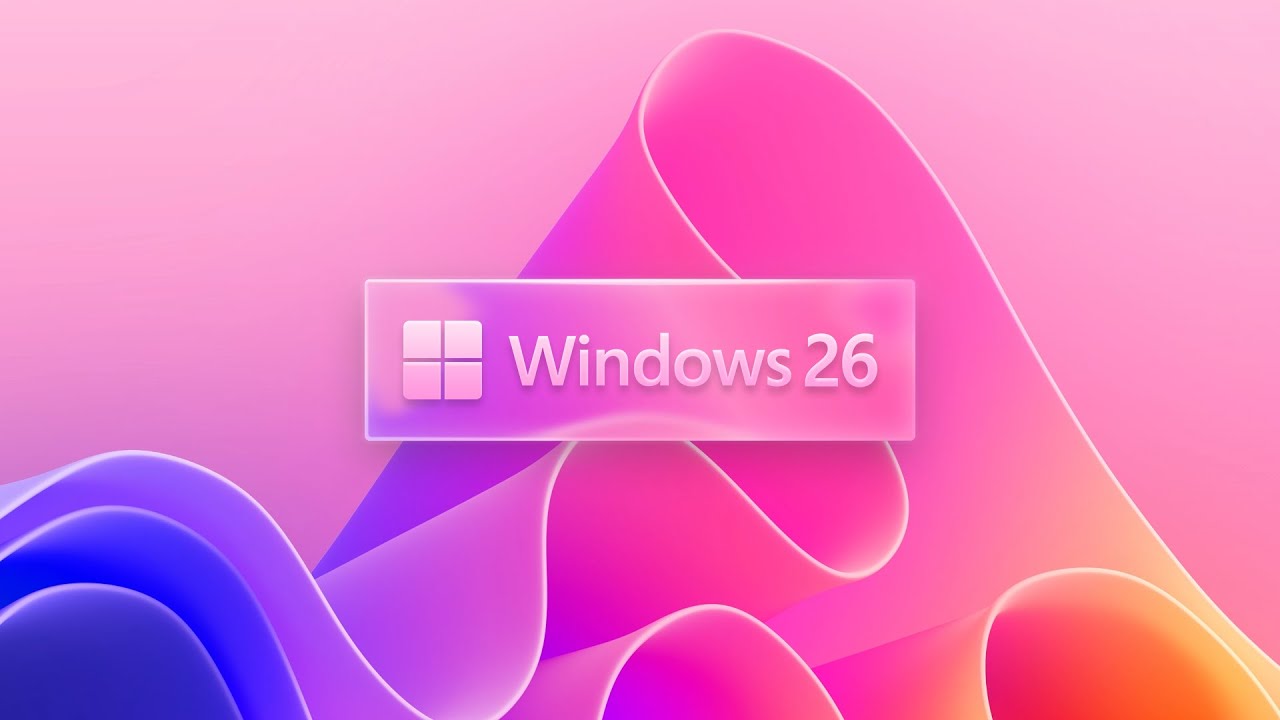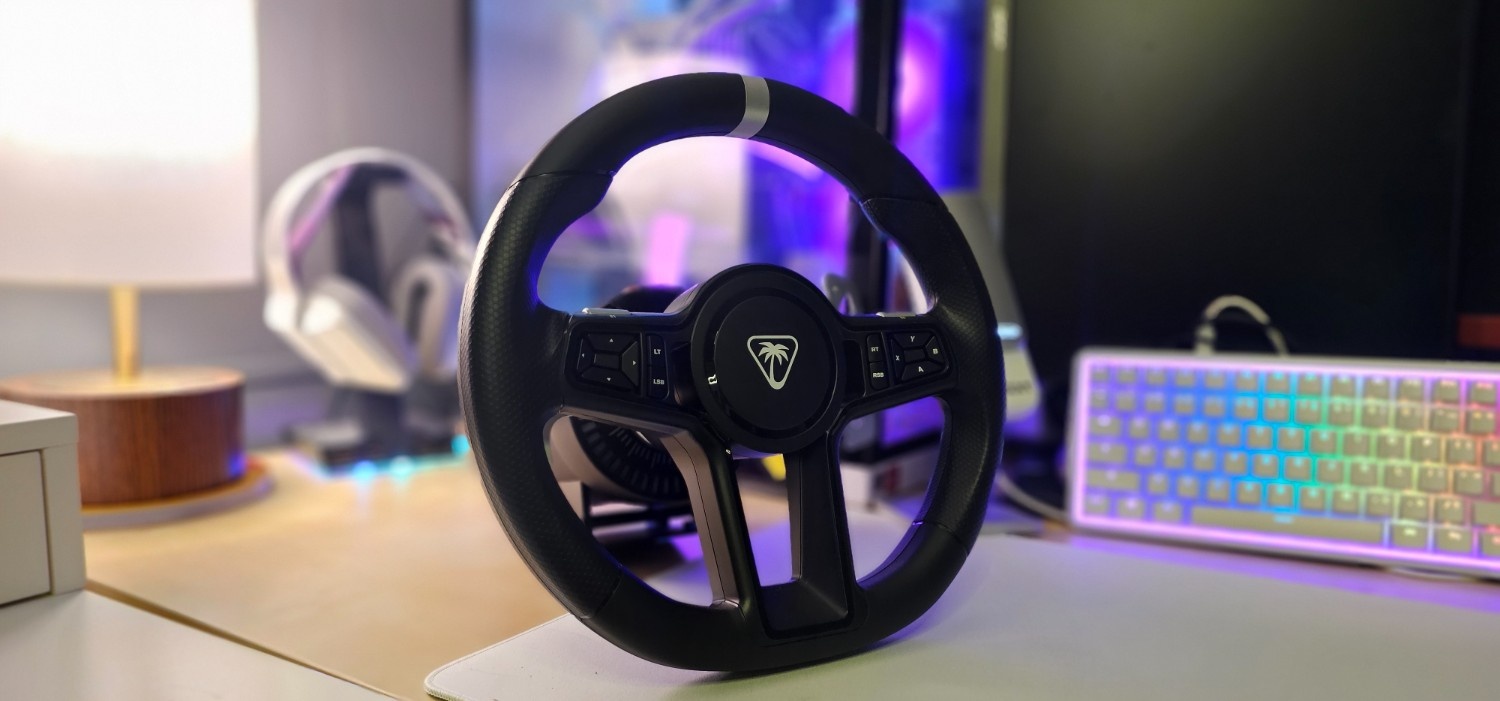Forget Microsoft's unpopular agentic AI OS plans, Windows Aero makes a comeback in new 'Windows 26' concept — but with a futuristic twist and a consistent dark theme
Instead of AI agents, this design focuses on aesthetics: Aero returns with sleek transparency and a unified dark theme.

All the latest news, reviews, and guides for Windows and Xbox diehards.
You are now subscribed
Your newsletter sign-up was successful
In August, Microsoft CEO Satya Nadella indicated that the company is evolving beyond co-founder Bill Gates' software factory vision, which has primarily helped drive its market capitalization well beyond $3 trillion. Instead, the software giant's next chapter will be more centered on intelligence, integration, and AI.
Over the past few years, the company has heavily invested in AI, venturing into a multibillion-dollar partnership with OpenAI. Consequently, it has heavily integrated the ChatGPT maker's next-gen technology across its tech stack, including Windows.
OpenAI CEO Sam Altman recently admitted that Microsoft and Satya Nadella's early conviction heavily contributed to the $500 billion company's success. But perhaps more interestingly, Bill Gates, who is reportedly intimately involved in Microsoft's affairs despite departing from the company to focus on philanthropy, warned CEO Satya Nadella from making the initial $1 billion investment in 2019. "You're going to burn this billion dollars," Gates added.
However, this move has received a lot of backlash from users, which could be among the main reasons why some are hell-bent on sticking to Windows 10 despite Microsoft ending support for the operating system on October 14, 2025. Of course, the company's stringent hardware requirements and flawed design elements have played a major role.
But as it now seems, Microsoft is planning to venture into the next phase, more recently hinting that it could evolve into an agentic AI-powered OS. Microsoft CVP and Windows lead Pavan Davuluri revealed that Windows 11's successor will present "a truly ambient and multi-modal experience made possible by AI that will redefine our usage of computers."
Microsoft's Corporate Vice President of Enterprise & Security, David Weston, further expounded on this, suggesting that "the world of mousing and keyboarding around will feel as alien as it does to Gen Z [using] MS-DOS".
Davuluri recently made a similar claim on X, indicating that Windows is "evolving into an agentic OS". Microsoft is seemingly making good on its promise and has already reorganized its Windows team to better prepare for the development of an AI-powered operating system in the foreseeable future.
All the latest news, reviews, and guides for Windows and Xbox diehards.
The move has sparked a lot of controversy and even fury among users across social media platforms. "It’s evolving into a bug-ridden slop pile that’s not stable enough for an enterprise environment," a user lamented. "You guys have utterly destroyed it what was already a heavily flawed product in the first place."
Counter proposal — this Windows 26 concept could be a great starting point for Microsoft
Over the past few months, power users and Windows enthusiasts alike have taken it upon themselves to fix what Microsoft has thrown a deaf ear to. "Windows doesn't really suck," indicated retired Microsoft Engineer Dave W. Plummer. "It's that Windows tries to be a friendly town for everybody, and the zoning board forgot to include a neighbourhood for the weirdos who build their own furniture".
In a detailed 16-minute-long YouTube video, the OS engineer highlighted how he'd fix Windows with a "pro mode," which is essentially the answer to all power users' woes about the platform's shortcomings.
Concept designer Abdi (AR 4789 on YouTube) has also shared some interesting concept designs that seemingly address the complaints users have about Windows, including Windows 12.2 with a hint of nostalgia, and this 'Brilliant' Windows 12 concept.
And now, the talented designer is back with yet another concept — this time, Windows 26. In his typical demo style, the concept video is short and sweet. The concept features a friendly design consistent across the operating system, including a shrunk Taskbar, which I presume can be adjusted in the settings to meet your specifications for better productivity.
The Start menu also gets a glow-up, which subscribes to the Fluent Design system. AI has seemingly taken a backseat in the concept design video, and only makes an appearance where it really matters. For instance, when looking for files in your device, kind of like the Semantic search feature in those shiny Copilot+ PCs that lets you find files in a split second using natural language.
Copilot AI also gets a brain transplant, which seemingly makes it smarter to take on complex and even repetitive tasks like changing your device's background.
Windows 26 also ships with a turn of customization options and a more fluid and consistent dark mode. Microsoft, what say you?👀 What's more, like how PowerToys' auto‑switch light feature, it lets you switch between dark and light mode automatically, depending on what time of the day it is (I assume sunrise and sunset times).
While this hasn't been specifically spelled out as the minimum system requirements for the futuristic OS, the device ships with 2TB of storage, 32GB RAM, and a Snapdragon X Elite chip. But what stands out the most for me is how beautifully the Liquid Glass design complements the entire design. it reminds me of Aero Glass from the Windows Vista days. Such a blast from the past!
As always, this is just a concept design that envisions what a future version of Windows could possibly look like, but if only Microsoft embraces some of these ideas.
FAQ
What is Windows Aero?
Windows Aero was Microsoft’s glossy, glass‑like interface introduced in Windows Vista and carried into Windows 7. It became iconic for its transparency effects and smooth animations
What does the Windows 26 concept show?
The concept revives Aero’s translucent design but adds a consistent dark theme, futuristic UI elements, and modernized window management.
Why is this significant?
It contrasts with Microsoft’s current push toward an “agentic OS” powered by AI, instead focusing on visual design and user experience nostalgia.
Is this official?
No — this is a fan‑made concept design, not an official Microsoft roadmap.
What are Microsoft's future plans for Windows?
According to recent comments by Windows lead Pavan Davuluri, Windows 11's successor might be heavily AI-powered as the platform evolves into the agentic AI era.

Follow Windows Central on Google News to keep our latest news, insights, and features at the top of your feeds!

Kevin Okemwa is a seasoned tech journalist based in Nairobi, Kenya with lots of experience covering the latest trends and developments in the industry at Windows Central. With a passion for innovation and a keen eye for detail, he has written for leading publications such as OnMSFT, MakeUseOf, and Windows Report, providing insightful analysis and breaking news on everything revolving around the Microsoft ecosystem. While AFK and not busy following the ever-emerging trends in tech, you can find him exploring the world or listening to music.
You must confirm your public display name before commenting
Please logout and then login again, you will then be prompted to enter your display name.

